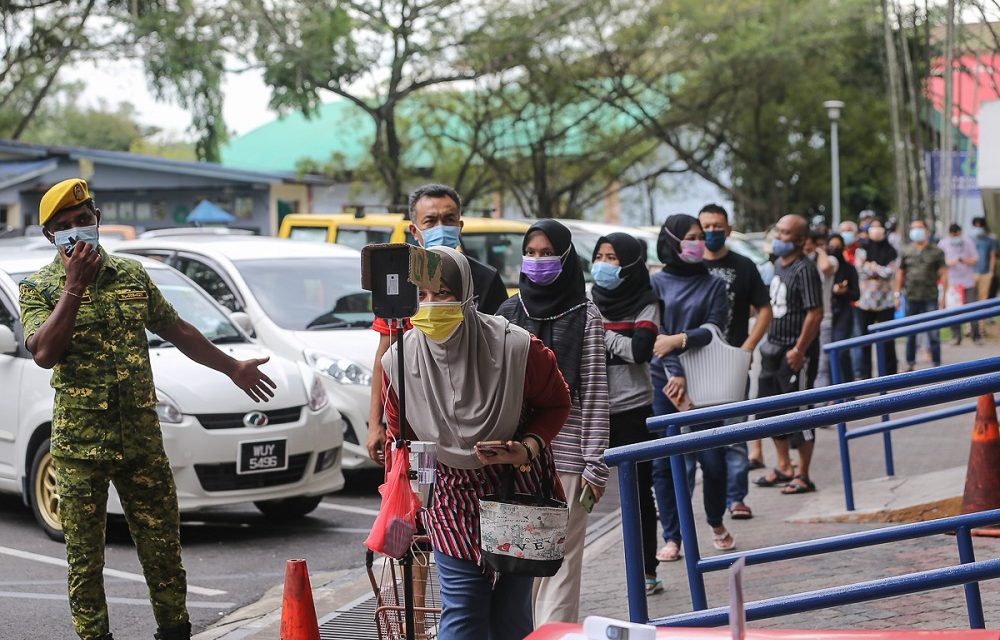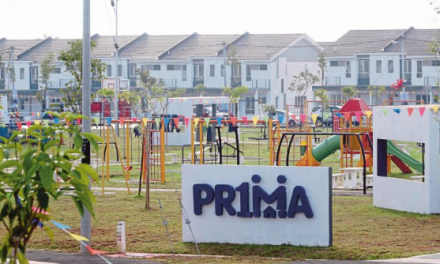Implementing MCO 3.0 the right move, says WHO
The decision to place Malaysia again under a movement control order (MCO) from today to June 7 is the right move to curb the growing spread of Covid-19 in the country. World Health Organisation (WHO) representative in Malaysia, Brunei and Singapore Dr Ying-Ru Jacqueline Lo said the measure was important as the capacity of hospital utilisation had reached a critical level. “We are crossing the red line when hospital wards and intensive care units are full. When more healthcare workers are getting infected, there is a risk that the healthcare system will collapse,” she said. Dr Lo said the people should support the move as the measure was also taken by many countries to curb the pandemic. “It is very difficult for the government to announce the drastic measure (especially during Hari Raya Aidilfitri), but clearly WHO recommended it as part of the government’s measures,” she said. (The Star)
MCO 3.0 not expected to have significant impact on Malaysia’s economic growth
The implementation of the third movement control order (MCO 3.0) nationwide is not expected to have a significant impact on the country’s economic growth as almost all economic sectors are allowed to remain operational. Finance Minister Datuk Seri Tengku Zafrul Tengku Abdul Aziz said the closure of all economic sectors would be more detrimental for the vulnerable groups. Tengku Zafrul said due to the implementation of MCO 3.0, several segments of the services sector which are based on physical interaction — including tourism — are expected to continue to be affected due to the interstate travel bans and restrictions on social activities. However, he said the government is confident that the country’s GDP will continue to grow at the projected rate of 6.0% to 7.5%, in line with the estimates from the International Monetary Fund (6.5%), World Bank (6.0%) and the Asian Development Bank (6.0%). (Malay Mail)
‘Govt should include industry players in improvement of HIDE system’
Malaysian REIT Managers Association (MRMA) has urged the government to include various industry players in the improvement of the Hotspot Identification for Dynamic Engagement (HIDE), according to its chairman Datuk Jeffrey Ng. Ng highlighted this will enable the industry players to contribute a collective effort in helping the authority in controlling the spread of the Covid-19 infection without adding any further adverse pressure on the tenants, rakyat and businesses. The association suggested that HIDE release the supporting data and information directly to the affected malls or organizations for the owners of the malls and premises that are in the best position to make the relevant decision to deal with the affected outlets and areas by following the strict SOPs that are already in place. The HIDE system developed by Bank Negara Malaysia (BNM) and the Health Ministry (MoH) is aimed at giving early warning to prevent spikes of Covid-19 infections by using data from MySejahtera application. MRMA added the HIDE system should analyse potentials by weighing the volume of traffic so that it can reflect a more accurate percentage of potential risk. (The Edge)
First batch of Sinovac vaccines prepared in Malaysia ready to roll out
The first batch of Sinovac Covid-19 vaccines prepared for distribution here by Pharmaniaga LifeScience Sdn Bhd (PLS) is now ready to be administered to the public. A total of 290,480 doses of Sinovac vaccines filled and finished by PLS at its plant in Puchong have received approval from the National Pharmaceutical Regulatory Agency (NPRA). With the NPRA approval, the first batch can be distributed at all Health Ministry vaccination dispensing centres nationwide (PPV). As of May 10, PLS has prepared 1.2 million doses of Sinovac vaccines. PLS said its plant is able to produce two million doses per month. Pharmaniaga on March 15 said it had signed an agreement with China’s Sinovac Biotech Ltd’s subsidiary for the purchase of ready-to-fill bulk product of the Covid-19 vaccine. (The Star)
Female-headed households among most affected by Covid-19 in Malaysia
A study has revealed that low-income households were disproportionately affected by the Covid-19 crisis, with female-headed households and households headed by people with disabilities reporting the deepest and most negative impact. Minister in the Prime Minister’s Department for Economic Affairs, Datuk Seri Mustapa Mohamed said the situation of these groups, however, has improved since the first survey of the study titled ‘Families on the Edge’ was conducted in May 2020. Unemployment among heads of households fell from a peak of 25 per cent to 12% while the situation for female heads of household also improved from 32% to 16%. According to the study, 45% of employed heads of households are not registered with either Employees’ Provident Fund (EPF) or Social Security Organisation (SOCSO). He also noted that most households have recorded an improvement in their income as a result of the various cash transfer programmes under the government’s stimulus measures. On another note, the MCOs also had an adverse impact on mental health with one in four respondents reported being depressed. (The Sun Daily)





